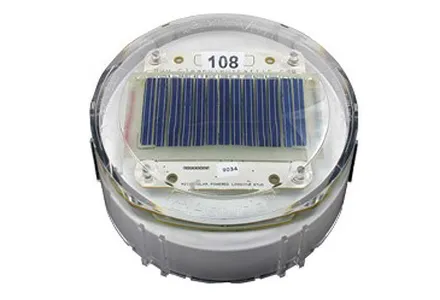Clearview Traffic brand Golden River’s innovative M210 Logging Stud for planners and road operators is said to be achieving global sales success among those looking for a low-cost vehicle counting solution for both permanent and occasional data collection.
The M210 solar powered logging stud provides accurate count information in a simple self-contained unit that can be installed quickly and easily, thus minimising costs, saving valuable time and most importantly disruption with installation and ongoing
June 24, 2014
Read time: 2 mins

The M210 solar powered logging stud provides accurate count information in a simple self-contained unit that can be installed quickly and easily, thus minimising costs, saving valuable time and most importantly disruption with installation and ongoing maintenance costs.
The simple in-road counting stud is said to have established worldwide recognition through a number of successful installations spanning Europe, USA and Australasia. From visitor car parks at country parks and permanent car park counting at shopping malls, to monitoring vehicle flow at recycling centres alongside more complex data collection of traffic volume in capital cities, the M210 logging stud has demonstrated its multi-purpose qualities. Among its many features are solar energy harvesting, low power radio communications and magnetometer-based vehicle detection.
Prior to its use of the M210 logging stud, The Department of Infrastructure Traffic and Transport in Amsterdam, Holland, used ad hoc temporary surveys deploying tube and radar counters across multiple locations several times a year to give them a snapshot picture of the city’s traffic flow. However, this caused significant disruption and frustration for road users during installation and was becoming quite costly.
Seeing the chance to become more cost-effective, the city has now deployed 130 of the M210 logging studs that are able to collect data 24/7 365 days a year and offer the ability to provide additional data outside the existing contractual agreement without incurring any further installation costs. This has helped gain valuable insight into traffic movements surrounding major events that take place in Amsterdam, such as when the new King was sworn in during April 2013, and has resulted in a number of subsequent installations.
In New South Wales, Australia, the Roads and Maritime Service wanted to establish a more complete picture of traffic flows in and out of the region. Over 450 M210 studs have now been installed across the province with more planned. Following extensive testing and on-road trials by the Road Authority in NSW, the major advantages of the M210 logging stud over other technology are said to have shone through.







